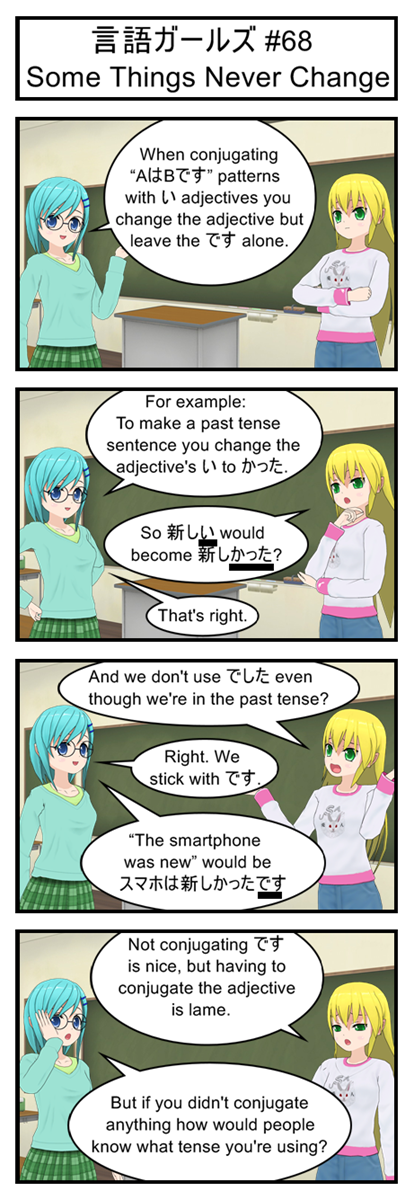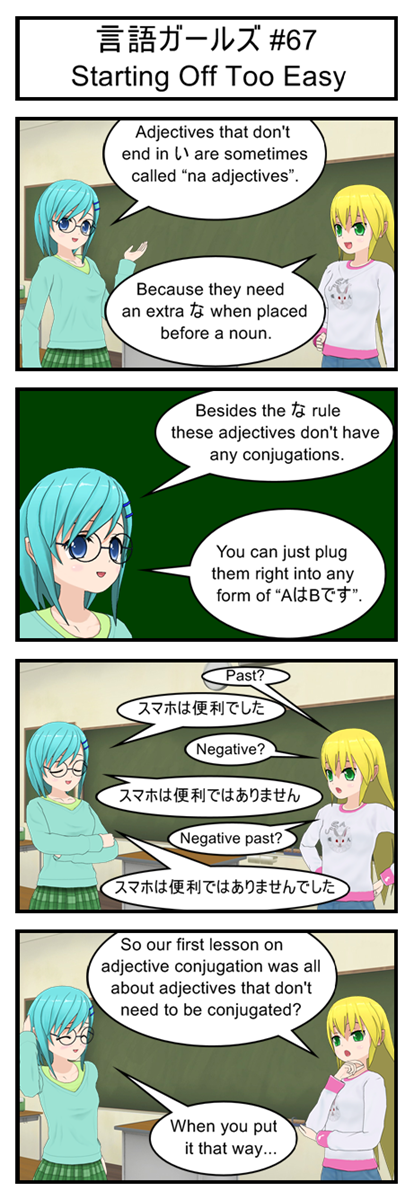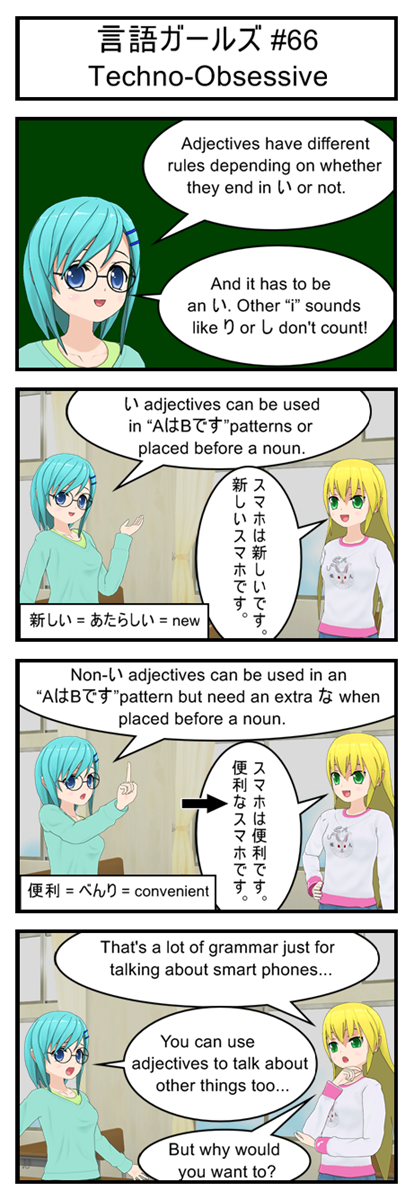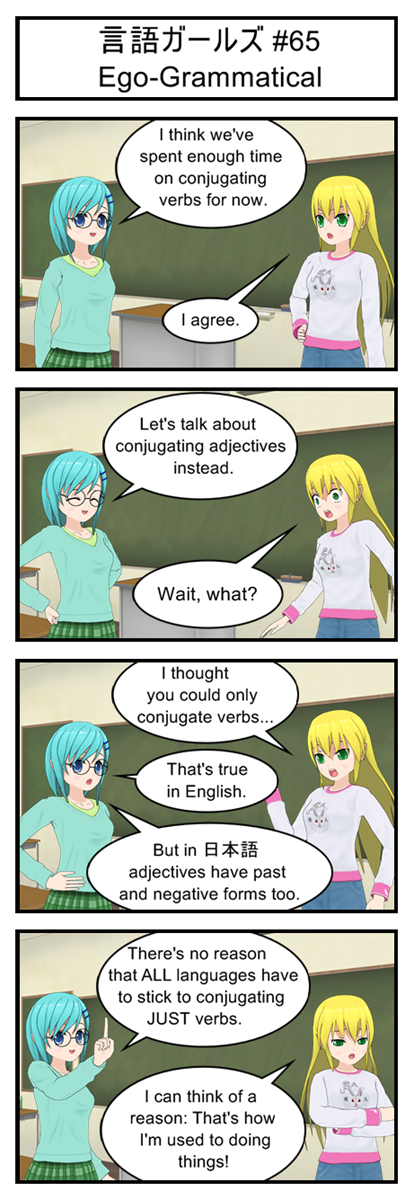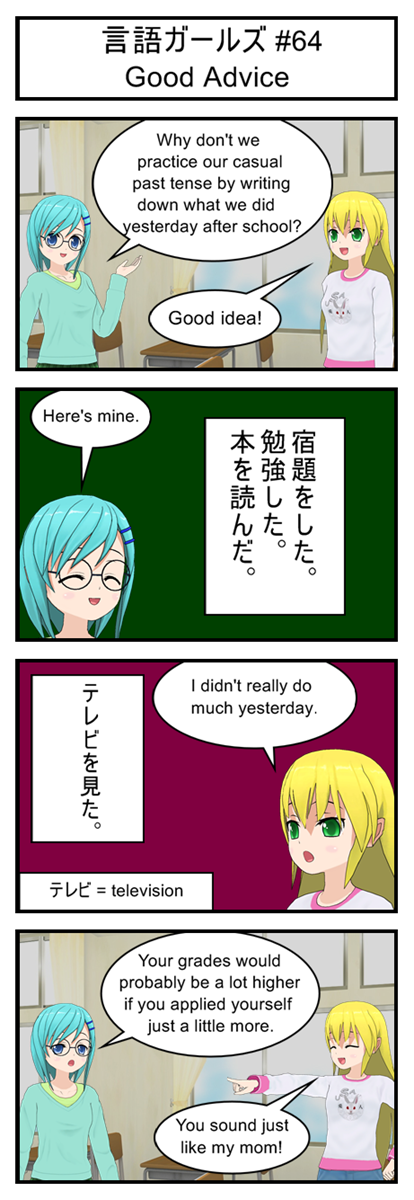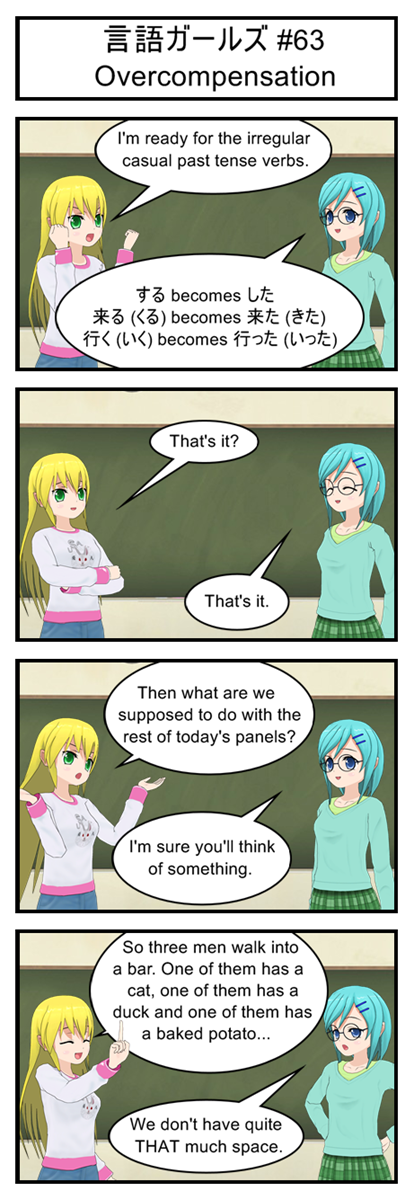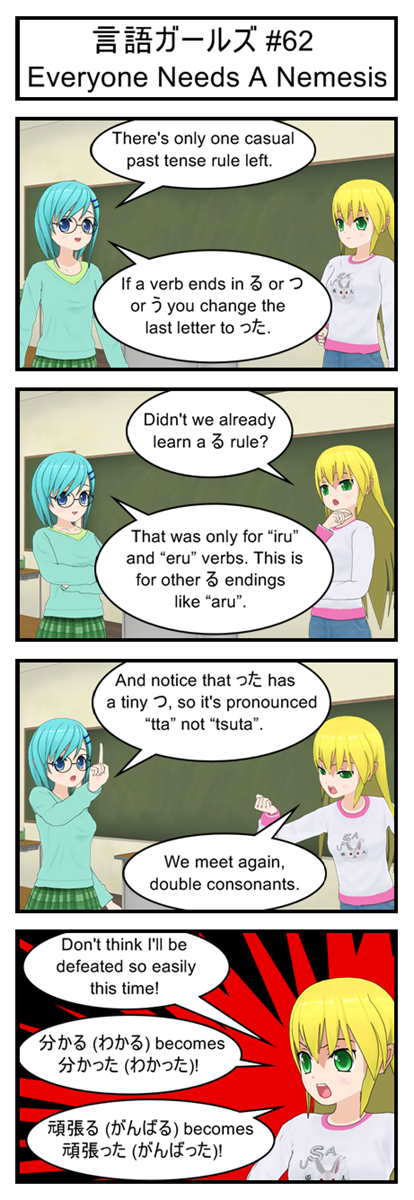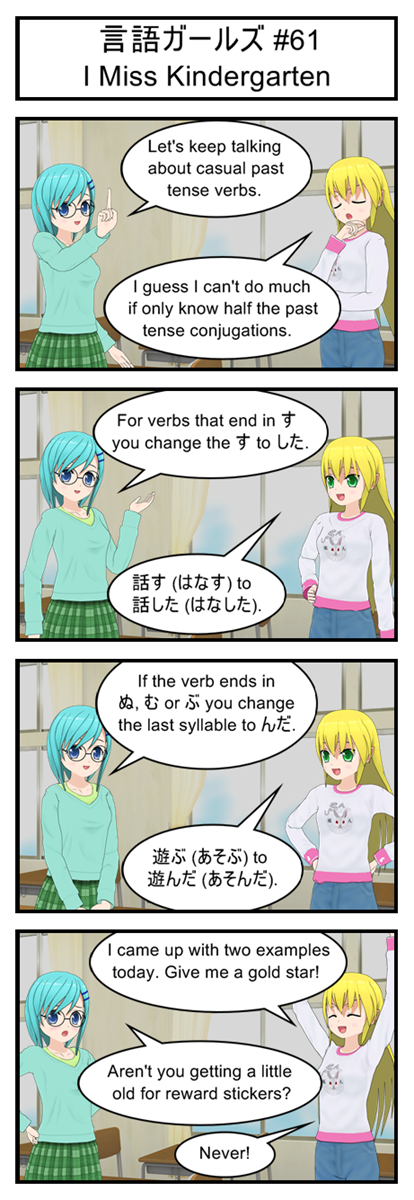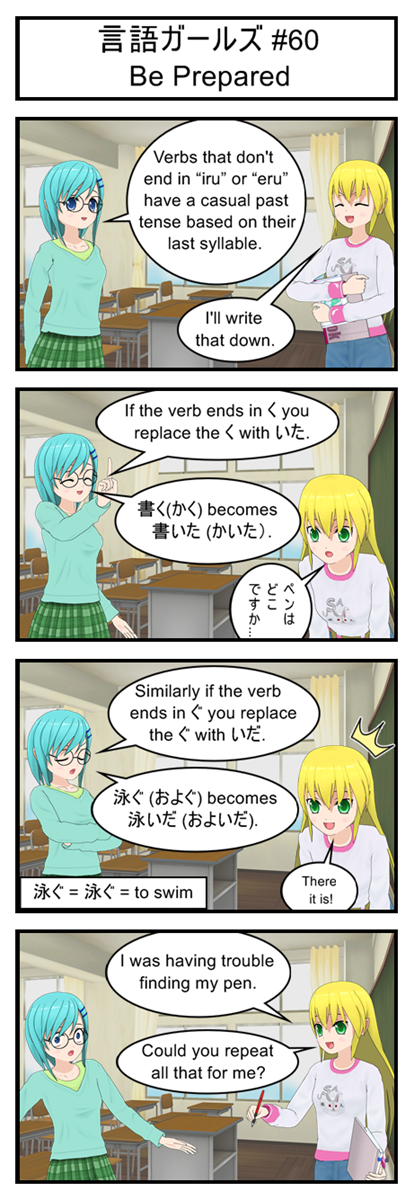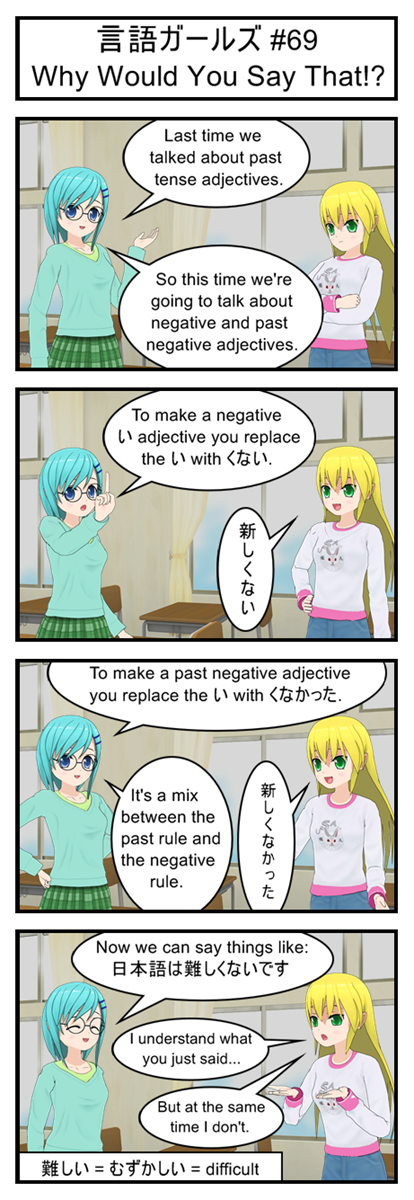
You don’t really hear negative adjectives all that often. People tend to say “That’s old”, not “That is not new”. The big exception is when you need to contradict or correct someone. If you get asked “Is that a new shirt?” it makes perfect sense to respond “No, it’s not new” (いいえ。あたらしくないです).
Vocabulary
難しい = むずかしい = difficult
Transcript
言語ガールズ #69
Why Would You Say That!?
Blue: Last time we talked about past tense adjectives.
Blue: So this time we’re going to talk about negative and past negative adjectives.
Blue: To make a negative い adjective you replace the い with くない.
Yellow: 新しくない
Blue: To make a past negative adjective you replace the い with くなかった.
Blue: It’s a mix between the past rule and the negative rule.
Yellow: 新しくなかった
Blue: Now we can say things like: 日本語は難しくないです
Yellow: I understand what you just said…
Yellow: But at the same time I don’t.
